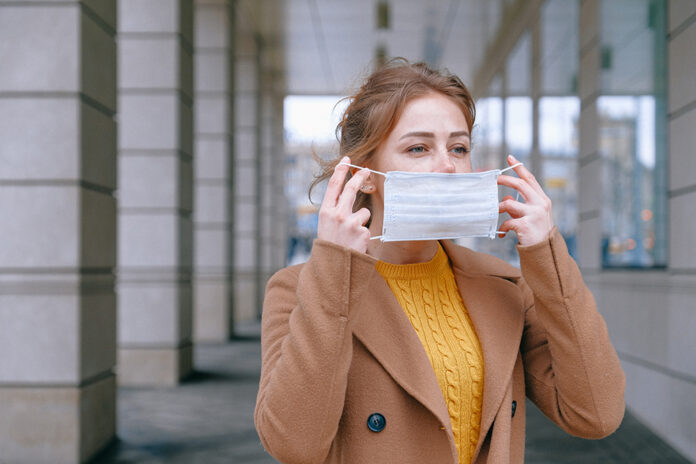THE Health Protection Surveillance Centre has today been notified of fewer than five additional cases of Covid-19 in Clare and six additional deaths related to COVID-19 nationally. All reported deaths occurred in March. The median age of those who died was 79 years and the age range was 49 to 87 years.There has been a total of 4,687 COVID-19 related deaths in Ireland.
As of midnight, Tuesday, March 30, the HPSC has been notified of 411 confirmed cases of Covid-19. There is now a total of 235,854* confirmed cases of Covid-19 in Ireland.
Of the cases notified today:
202 are men / 209 are women
70% are under 45 years of age
The median age is 35 years old
150 in Dublin, 31 in Donegal, 25 in Kildare, 25 in Wexford, 21 in Offaly and the remaining 159 cases are spread across 17 other counties**.
As of 8am today, 297 Covid-19 patients are hospitalised, of which 67 are in ICU. 16 additional hospitalisations in the past 24 hours.
As of March 28, 2021, 806,541 doses of Covid-19 vaccine have been administered in Ireland:
580,857 people have received their first dose
225,684 people have received their second dose
Dr Ronan Glynn, Deputy Chief Medical Officer, Department of Health, said, “Together with all of the basic public health measures with which we are all now so familiar, vaccination will significantly reduce risk of Covid-19 over the next relatively short period of time. It will radically reduce mortality when those over 70 are fully vaccinated but will initially have a smaller effect on hospitalisation and critical care until the wider adult population, especially vulnerable adults and those aged 50-69 years, are protected by vaccination.
“There is a critical window over the next eight weeks where any significant increase in close contact is likely to lead to a significant fourth wave of infection in the range of that experienced in January 2021.
“We can and should be optimistic for an enjoyable summer ahead but, in the meantime, we have to continue to work together to prevent a further wave of infection as we accelerate vaccination across society and maintain our health services.”
Professor Philip Nolan, Chair of the NPHET Irish Epidemiological Modelling Advisory Group, said, “The Reproduction number is currently estimated at 1.0 – 1.3. If the epidemic is growing again now, the doubling time is estimated at 35 days or longer.
“When comparing the risks of levels of social mixing now and over the coming months with that which applied in 2020, we need to take into account the B.1.1.7 variant and how easily that transmits, and we must also take account the vaccination-induced immunity that will progressively protect us and make it more difficult for the virus to transmit.
“Vaccination will contribute greatly to the easing of measures in the coming months, however now we need keep transmission as low as possible so that vaccination of the population can take place and have the desired effect.”
Dr Siobhán Ni Bhriain, Consultant Psychiatrist and Integrated Care Lead, HSE, said; “We are continuing to review instances of ‘long-COVID’. While the evidence base is limited to date, the studies available indicate that people who have had COVID-19 have reported a drop in quality of life including greater difficulty doing usual activities as well as increases in fatigue, anxiety and loss of sense of taste and or smell. One study suggests that outcomes are worse in working age females than males, in those who were hospitalised.
“The long-term impact of post-COVID syndromes on the working age population is not well understood but it could be significant. Our best defence against long term health impacts such as those noted above is still to adhere to the public health advice. Stay safe by sticking with your bubble and enjoy the outdoors.”
Professor Pete Lunn, Behavioural Research Unit, ESRI, said, “Compliance remains generally high, but the behaviour of a minority is increasing the risk for all of us. Even this minority are trying to stick to restrictions in most aspects, but they are nevertheless visiting other homes. It would be much better if people could instead meet at outdoor locations and maintain distance.
“Our research finds that three psychological factors are linked to increased social activity: how worried people are in general by the virus, whether they view the restrictions as coherent, and how they personally view the trade-off between preventing the spread of the virus against the burden of the restrictions. Interestingly, we don’t find that fatigue is directly linked to behaviour. Those who say they are most tired of the restrictions are not more likely to break them. Rather, what matters is whether they view the benefit to society from preventing the spread of the virus as more important.”
A native of Ennis, Colin McGann has been editor of The Clare Champion since August 2020. Former editor of The Clare People, he is a journalism and communications graduate of Dublin Institute of Technology.


